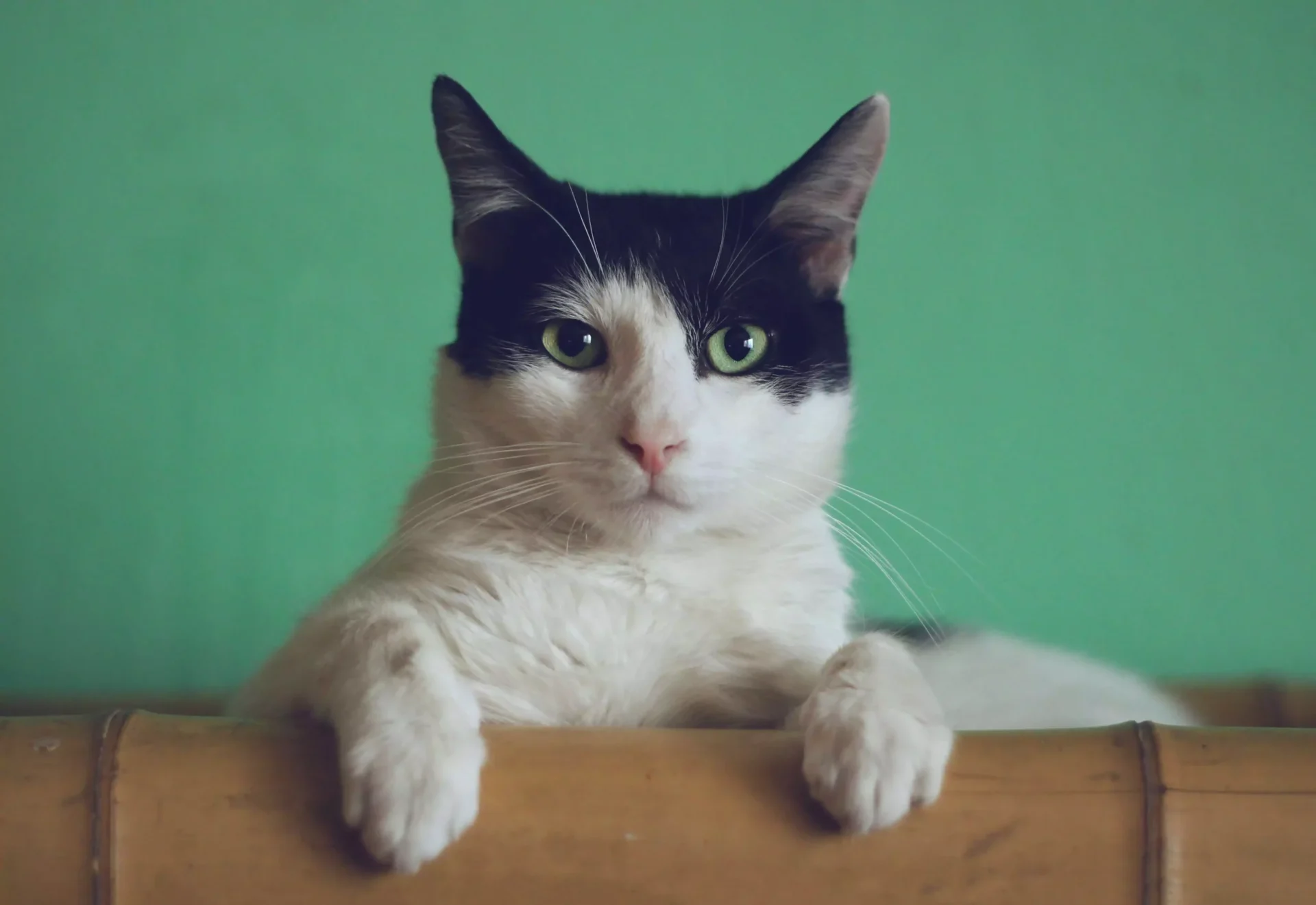Taking care of an aging pet can be as challenging as it is rewarding. Our senior furry friends often require special attention to maintain their health and happiness as they enter their golden years. This article offers essential senior pet care tips that focus on the unique needs of older pets. From nutritional adjustments to more frequent veterinary visits, each recommendation is backed by veterinary expertise and aimed at enhancing the quality of life for your senior pet. Whether you’re managing a chronic illness or simply adapting to your pet’s slower pace, these tips will help you provide the compassionate care your aging companion deserves. Dive into our guide to learn how to keep your senior pet healthy, comfortable, and thriving in their later years.
Is your furry bestie in their golden years? Pets somehow manage to get even cuter as they grow old. Many dogs and cats become super sweet in their golden years, and just want to be cuddled, petted, and loved on. They also tend to get that really cute demeanor, and spend their time napping and snuggling their humans. Of course, just like people, pets do have slightly different care needs when they reach their golden years. Read on as a local Weld County, CO vet offers some advice on senior pet care.
Do Breed Specific Research
Some medical conditions are just common among our furry pals in general. These include things like hip dysplasia, arthritis, and vision and hearing loss. However, your pet’s breed also comes into play here. Do some research, and find out whether or not your four-legged pal is at elevated risk of developing any specific condition. And while breed tends to be a bigger factor with dogs than it does with cats, it can and does play a role in kitties’ physiology as well. If your dog or cat is a mix, as many are, you may want to consider doing a DNA test.
Monitor Food/Water Intake
Many health conditions common in older pets can impact their appetite, food and water consumption, urine output, and weight. While these are not the only indicators to be aware of, they are often the initial signs pet owners observe. Monitoring your pet’s eating and drinking habits, along with their weight and overall body condition, is vital for senior pet care tips. Additionally, be vigilant for symptoms such as lethargy, respiratory problems, and lameness to ensure your aging pet remains healthy and comfortable.
Keep Up With Veterinary Care
Because older animals have elevated risks of developing many health problems, it’s important to monitor their health. Fido and Fluffy will benefit from more frequent visits. This goes double for pets with known medical issues. Follow your vet’s recommended appointment schedule.
You’ll also need to watch for signs of illness. These would include the following:
- Vomiting
- Swelling
- Poor appetite
- Less urination
- Lethargy
- Bad breath
- Breathing
- Cough
- Fecal incontinence
- Increased appetite
- Unexplained lameness
- Altered sleep cycles
- Arthritis
- Disorientation
- Hearing and vision loss
- Losing weight
- Obesity
- Aggression
- Cancer
- Difficulty sitting down or standing up
- Heart problems
- Increased thirst
- Abdominal Swelling
- Anxiety
Contact your vet right away if you notice any of these warning signs. Many issues can be treated, but this is always going to be more effective if done early on.
Focus On Comfort
As your pet ages, you’ll want to shift your focus from keeping them entertained to keeping them comfortable. Small things, like comfy beds and night lights, can go a long way here. The exact steps you would need to take may vary a bit, depending on what specific issues your pet gets. For instance, if Fido can’t see well, you may need to set out carpet runners to help him find his way around. A drinking fountain would also help, as would odor-eater stick-ups. If your pet can’t hear, you may need to train him to come to a laser pointer or flashlight. Be sure to ask your Weld County, CO vet for specific advice.
Help Them Stay Active
Many senior animals tend to be more sedentary. Fido and Fluffy may have been more energetic in their youth, spending hours running and playing! Nonetheless, maintaining physical activity is vital for their health. Regular walks are a great exercise for older dogs, supporting their mobility and overall well-being. Swimming can also be a beneficial activity for some dogs, though it’s not suitable for all. For cats, engaging in playful activities helps keep them active and can be enjoyable for dogs too. These senior pet care tips ensure your pets remain healthy and happy in their golden years.
That brings us to our next section. We do have some tips for playing with a senior pet
Our canine and feline friends are both very playful, which is one reason they’re so much fun. As Fido and Fluffy grow older, they’ll still have those frisky moments, and they’ll continue to both enjoy and benefit from unleashing their (respective) inner puppy and kitten. However, you’ll need to consider your four-legged pal’s age during playtime, and make a few changes.
Here are some tips on playing with your adorable, furry retiree.
- Provide Mental Stimulation Senior pets don’t need as much physical activity as young ones do, but they’ll never outgrow the need for mental stimulation. Opt for activities that challenge your furry pal’s mind, such as scavenger hunts, trick training, or puzzle toys.
- Make Sure The Play Area Is Safe Always choose a safe area for your four-legged friend to play in. Avoid places with slippery surfaces or steeply-angled hills or ramps. It’s also best to stay away from pools, stairs, and fireplaces.
- Always Choose Appropriate Toys Older pets sometimes have different playtime preferences than their younger counterparts do. You may want to opt for toys that are brightly colored. If Fido or Fluffy has a hard time seeing or hearing, opt for playthings that light up or make noise. Change these out regularly to keep things interesting.
- Don’t Go Overboard Older pets can get tired out quickly. They don’t have the strength or stamina younger animals do. Take care not to let your furry buddy overexert themselves. If you notice any signs of fatigue, call it a day.
- Don’t Underdo It While you don’t want to push a senior pet too hard, you don’t want to give up on playtime, either. The physical activity and mental stimulation are both great for them! Fido and Fluffy may tap out after just a few minutes, but that’s fine. Even a few minutes a day will be beneficial.
- Get Some Customized Professional Advice Senior pets are quite fragile, and are more prone to injuries, slips, and falls than younger animals. They also shouldn’t be encouraged to do certain things. For instance, an older dog with hip dysplasia shouldn’t be urged to jump or ‘stand’, while a senior kitty shouldn’t be expected to jump high or far. Ask your vet for specific advice on this.
- Have Fun Our animal companions never stop being cute. In fact, many senior pets somehow become extra adorable. Enjoy these sweet and charming moments with your furry friend! The time we have with our pets passes much too quickly.
Make sure to provide your older pet with a loving, safe, and comfortable environment. Allocate additional quality time for your senior dog and allow your cat the pleasure of snuggling on your lap. After a lifetime of offering love, laughter, and companionship, your senior pet relies on your care more than ever. Implementing senior pet care tips can enhance this precious stage, which may pass swiftly, so cherish every moment.
Conclusion: As your furry pal grows older, their needs will change a bit. You’ll want to get specific advice from your vet on things like their diet and care requirements. Aside from that, you’ll want to turn your focus to keeping your pet comfortable, rather than keeping them out of mischief.
Senior Pet Care Tips in 2025: Health Challenges and Lifestyle Adjustments
What health problems and changes are common in senior pets?
Senior pets often experience a range of health issues as they age. Common problems include arthritis, hip dysplasia, vision and hearing loss, and dental disease. Many older animals also face changes in metabolism, leading to weight gain or loss, and may develop more serious conditions like cancer, heart disease, or diabetes. Behavioral changes such as increased anxiety, disorientation, and alterations in sleep cycles are also frequent. Monitoring food, water intake, and activity levels is crucial, as these can be early indicators of health problems. Regular veterinary check-ups are recommended to manage these age-related changes effectively.
How does dental health affect senior pets?
Dental health significantly impacts senior pets, often exacerbating common age-related issues. Poor dental hygiene can lead to periodontal disease, which is associated with systemic problems such as heart disease and kidney infections. This occurs because bacteria from the mouth can enter the bloodstream, affecting vital organs. Additionally, dental problems in older pets can cause pain and difficulty eating, leading to nutritional deficiencies and weight loss. Regular dental check-ups and cleanings are vital to prevent these complications and maintain overall health and quality of life for aging pets.
Should new pets be introduced to a home with a senior pet?
Introducing a new pet into a home with a senior pet requires careful consideration of the older animal’s needs and temperament. Senior pets often have established routines and may be less adaptable to change, which can lead to stress or behavioral issues. It’s vital to ensure the older pet is healthy and can handle the interaction, as they might have specific medical conditions that affect their social and physical capabilities. Gradual introductions and monitoring interactions are crucial to fostering a positive relationship between the pets, with professional advice from a veterinarian recommended to tailor the approach to the specific animals involved.
What role does mental stimulation play for senior pets?
Mental stimulation is vital for senior pets as it helps maintain their cognitive functions and overall well-being. Activities like scavenger hunts, trick training, and puzzle toys not only provide mental engagement but also help prevent cognitive decline. These activities are beneficial as they cater to the reduced physical capabilities of older pets while still challenging their minds, which is critical to keeping them alert and active as they age.
How to recognize when it’s time to say goodbye?
Recognizing when to say goodbye to a senior pet involves observing changes in their health and behavior. Warning signs include increased lethargy, persistent vomiting, significant changes in appetite or weight, difficulty breathing, and unresponsiveness to treatment or care. These indicators suggest a decline in quality of life and may mean it’s time to consult with a veterinarian about end-of-life decisions. The aim is to ensure comfort and dignity for pets as they reach their final stage, balancing medical intervention with their overall well-being.
Make An Appointment At Our Weld County, CO Pet Clinic
Do you have questions about your pet’s health or care? Contact us, your local Weld County, CO pet hospital, today! We are dedicated to providing top-notch care.



